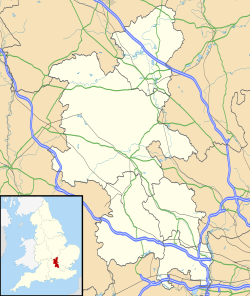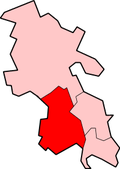| Fingest | |
|---|---|
 St Bartholomew's Church Fingest | |
Location within Buckinghamshire | |
| OS grid reference | SU777912 |
| Civil parish | |
| Unitary authority | |
| Ceremonial county | |
| Region | |
| Country | England |
| Sovereign state | United Kingdom |
| Post town | HENLEY-ON-THAMES |
| Postcode district | RG9 |
| Dialling code | 01491 |
| Police | Thames Valley |
| Fire | Buckinghamshire |
| Ambulance | South Central |
| UK Parliament | |
Fingest is a village in Buckinghamshire, England. [1] It is in the Chiltern Hills near the border with Oxfordshire. It is about six miles WSW of High Wycombe. It lies in the civil parish of Hambleden.
Contents
The parish church of St Bartholomew's dates from the early Norman period. It has an unusual tower, with a double vaulted roof. The church is a Grade I listed building. [2]

